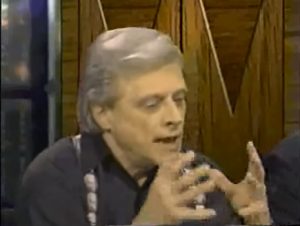For People Who Think They Don’t Like Sci-Fi

A friend bought a copy of The Chronocar with the simple intention of supporting me, and decided to read it to see what it was all about. He was surprised to find that he enjoyed it so much because, as he told me later, “I hate science fiction!” At least two other people have written reviews where they clearly express a dislike or ambivalence for science fiction, yet they admit that they enjoyed my story.
A young lady I know on Facebook was singing the praises of the latest installment of the Star Wars franchise and how much she enjoyed science fiction. In a comment, I corrected her. Star Wars may be great entertainment but it is not, I explained, science fiction.
“But, it has space ships and aliens!” she countered.
My favorite definition: in science fiction, the science, whether real or imaginary, has to be so central to the story that without it the story would fall apart. Star Wars does not fit this criteria. You could give the characters metal swords, horses and sea going ships and tell essentially the same story; rebels fighting an evil empire. Star Wars is Space Opera, where space is merely the setting and the technologies are props. In fact the science and technology doesn’t even have to be logical. Just cool and exciting. Like light sabers.
Lest Star Wars fans take offense, this is not a put down. I’m a fan of Star Wars, particularly the earlier films. In fact the first three were quite groundbreaking. It’s just that science fiction is not the proper category.
Sci-Fi is yet another animal. Usually more science fiction than space opera, but not by much. You get Sci-Fi when you start with some science fiction and try to popularize it by punching it up and sometimes dumbing it down. For example, the finest science fiction film ever made, in my humble opinion is 2001: A Space Odyssey. It was almost brutally accurate. The scenes in space often had music in the background; like the Blue Danube waltz playing while a shuttle docked with a space station. Not only for the beauty of it, but director Stanley Kubrick realized that there would be no sound in space, so you would not hear engines firing. In the sequel, 2010, made 20 years later, when the engines lit, the theater rumbled with the sound. Fun, yes. Accurate, no.
 In a now rather famous TV rant, science fiction author Harlan Ellison outlines what he felt was the difference between science fiction and Sci-Fi, on the Sci-Fi Channel of all places.
In a now rather famous TV rant, science fiction author Harlan Ellison outlines what he felt was the difference between science fiction and Sci-Fi, on the Sci-Fi Channel of all places.
So, in a nutshell, Sci-Fi tends involve a lot of excitement and explosions; the stuff of epic movies. Science fiction is often more cerebral, although there can be intrigue and action. Science fiction usually follows some sort of logic, the best involving the logic of real science. Sci-Fi, quite honestly, does not have to be logical. As long as it is exciting, scary, and mind boggling, it’s acceptable; think sharks in a tornado.
Star Trek, at least in the beginning, kind of skirted between the two. Cerebral enough to worry the producers that no one would understand it, but it still had it’s share of explosions and monsters.
Since the first Isaac Asimov novel I read as a kid, I have loved science fiction. Yes, I have enjoyed a lot of Sci-Fi, space opera and fantasy. But, as a writer, my goal is to help introduce readers to science fiction. Logical, thought provoking science fiction. Sort of “old fashioned” science fiction that can be enjoyed by many people, including those who don’t like Sci-Fi.
–Steve Bellinger
